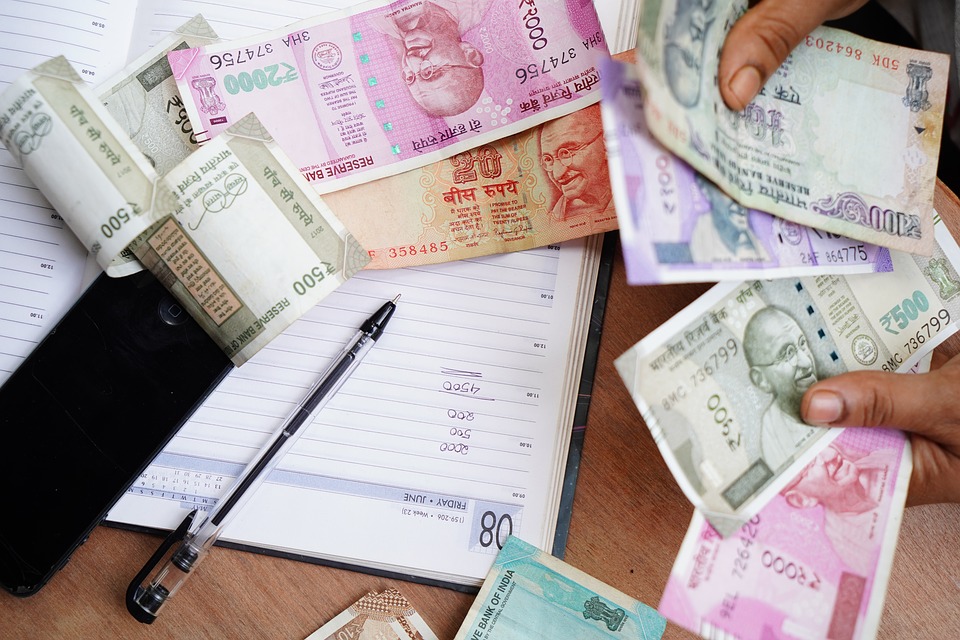Demat Accounts



Demat accounts allow you to hold certificates for shares and securities in an electronic format. The aim is to make online share trading easier and quicker. These accounts are most popular in India and Nepal, where securities dematerialisation is not commonplace, though there are similar accounts available in Qatar, the UK, USA, Germany and all over the world. In some countries, such as India, it is mandatory to open a demat account if you wish to trade shares in the stock market.
This article explains what a demat account is, the different types, how to compare them and how to open one.
Best Demat Accounts
What Is A Demat Account?
A demat account, meaning dematerialised account, provides the holder with the facilities to hold shares and documents in a digital format. The account is used to manage any investments in stocks, exchange-traded funds, bonds, government securities and mutual funds that an individual holds. Each time the holder buys or sells something like shares in a company, their demat account is credited or debited, much like a bank account would be.
Demat accounts reduce unnecessary paperwork and streamline the process of transferring shares; you simply log in online with your details to get started. They are maintained and regulated by different organizations in each country. For instance, in India, the National Securities Depository Limited (NSDL) and the Central Depository Services Limited (CDSL) maintain accounts.
How Demat Accounts Work
The definition of dematerialisation is the process of converting physical share certificates into electronic forms, which removes the need for investors to hold paper certificates. This makes it much quicker to transfer ownership between traders and a lot easier to maintain portfolios.
A wide variety of banks and financial service providers allow the opening of demat accounts, with some of the best providers in India including the State Bank of India (SBI), Zerodha, Icici, Axis Bank, Edelweiss and Union Bank. There are also several other banks outside of India letting people login and open demat accounts online, such as Nabil Bank, RBB Bank, NIC Asia Bank and Everest Bank.

Types Of Demat Accounts
There are three types of demat accounts available: A regular demat account, a repatriable demat account and a non-repatriable demat account.
A regular account is designed for residents of the country (e.g., India). Any shares bought are stored electronically in the account and any shares sold are debited from it.
In a repatriable account, funds are deposited in a bank account known as the non-resident external account (NRE). Funds in this account can be transferred abroad, and investments made using these funds are held in the repatriable demat account.
Conversely, in a non-repatriable account, funds are deposited in a bank account called the non-resident ordinary account (NRO). These funds cannot be transferred abroad and any investments sourced from these funds are stored in the non-repatriable demat account.
Funds can be transferred from an NRE to an NRO. However, once this happens, the funds become non-repatriable and cannot be sent abroad. Moreover, the funds cannot be sent back to the NRE account.
Advantages Of Demat Accounts
- Safe holding of share certificates
- Transfer shares quickly and easily
- No lot size requirement, buy or sell as little as one share
- Instantly view any bonus shares you receive and profit you make
- No stamp duty is required on share transfers, reducing charges and the cost of transactions
- You can update information like a change of address without having to contact each company individually
Disadvantages Of Demat Accounts
- Many providers include opening charges
- Complex learning curve for online trading newcomers
- You are charged even if you only hold one share in your account
- Most account providers (such as SBI, Zerodha, HDFC, Axis Bank) feature yearly charges known as annual maintenance fees
How To Compare Demat Accounts
When conducting a comparison of different demat account providers, there are a few factors to look at:
Ease Of Opening
One of the first things to look at when comparing demat accounts is how easy it is to open. Many providers use e-KYC registration, which allows investors to be validated through their Aadhar card. After that, only self-identification via a video call is required. It should be noted that a trade must be conducted within 48-hours when signing up online via this method.
It is possible to sign up without an Aadhar card, though the process will take more time. When the full form is filled out in person, five days are given to complete a trade.
Fees
Demat accounts often come with a few different fees. Opening charges for each provider should be compared, along with annual maintenance charges (AMCs). Some firms may offer zero fee promotions for a set period, which can make an account particularly competitive. Some providers also offer zero AMC accounts, though these often have other charges to be wary of.
Do They Offer A 3-In-1 Demat Account?
Many providers in India, such as Icici, SBI, HDFC and Axis Bank, offer this type of account. A 3-in-1 account includes a savings account, a demat account (with either the NSDL or CDSL), plus a trading account. There are also 2-in-1 accounts that offer demat and trading accounts without a savings account.
The benefit of a 3-in-1 account is that transferring funds is much easier and the entire process is more streamlined. With a 2-in-1, the holder must transfer funds from a bank account to a demat account, which adds time to the process.
Customer Support
Good customer service is always important when you’re looking to open a demat account. Always check that customer support details like a contact number and email are clearly defined and ensure that 24/7 support is available should something go wrong or if you have questions that need answering quickly.
Tools
Software tools can have a large impact on your experience in the financial markets, so the platform that the demat account provider offers to manage your account, be it on a website or mobile app, is important. Markets are volatile and can change quickly, so a fast-loading and responsive platform can make a big difference. You should also look at the additional tools available, like automated robots, signals and mobile account management. These can help display useful updates on market trends, as well as real-time data and analytics.
Security
You do not want to be at risk of hacking or fraud. Check the security levels of different providers through reviews on reputable websites to make sure you can trust the bank or brokerage to protect your investments.

Types Of Demat Account Available
Consider the type of account you would like to open. These could be for individuals, joint holding accounts where there are multiple holders or corporate accounts. If you are a non-resident, check that the provider offers repatriable or non-repatriable demat accounts.
How To Open a Demat Account
Below is a step-by-step guide to help you through the demat account opening procedure.
Choose A Provider
The first step is to choose a depository participant (DP). The DP is the bank, financial service provider or brokerage that you decide to open an account with. Refer to the guide above to compare different demat account providers.
Submit An Opening Form
Visit your chosen provider’s website and fill out an online demat account opening form for the account type that you’re interested in.
KYC (Know Your Customer)
Once the opening form is submitted, you must submit scanned copies of documents for proof of identity, proof of address, bank statements and income verification. Try to have all these documents ready before applying to speed the process up.
Verification
Following the KYC process, manual verification is needed. Some providers may require you to complete this in person, but many can now facilitate this using a webcam or a video call from a smartphone.
Sign Agreement Forms
This stage involves the signing of an agreement with the DP that contains all the duties and rights of both the DP and investor.
Receive BO ID Number
After your application is approved, you will receive your beneficial owner identification number (BO ID), which is used to access your demat account. With this, you are ready to begin trading.
Final Word On Demat Accounts
Demat accounts provide a digitally secure way of holding shares, bonds and government securities. Theft, forgery, loss and damage risks are all reduced by holding shares electronically and the transfer time is greatly reduced. Demat accounts are a requirement for residents of India and Nepal to begin trading in local stock markets. With so many providers competing, be on the lookout for good deals and bonuses when opening an account.
FAQs
Can I Open Two Demat Accounts With Different Brokers?
Yes, you can open multiple demat accounts if they are not with the same provider. Beware that each account will incur AMCs and having more will effectively double the amount you are charged.
Can NRIs Open Demat Accounts Online In India?
Yes, demat accounts are available for all Indian citizens, whether they are an NRI or not. Repatriable and non-repatriable demat accounts are available to any non-residents who want to trade within India.
Will I Be Charged To Open And Use A Demat Account?
Almost all banks and brokerages will request opening charges and yearly fees (AMCs). Look around at different packages to find the best deals with the lowest overall costs.
Are Demat Accounts Safe?
While there is a risk associated with any online account, demat accounts are generally safe to store share certificates. The risk of theft, loss, fraud and accidental damage is greatly reduced compared to paper copies of certificates.
Do I Need A 3-In-1 Demat Account?
It is not a necessity to have a 3-in-1 account. However, it greatly speeds up the process of transferring funds and buying or selling shares, so it is advisable to go for one if you can.



